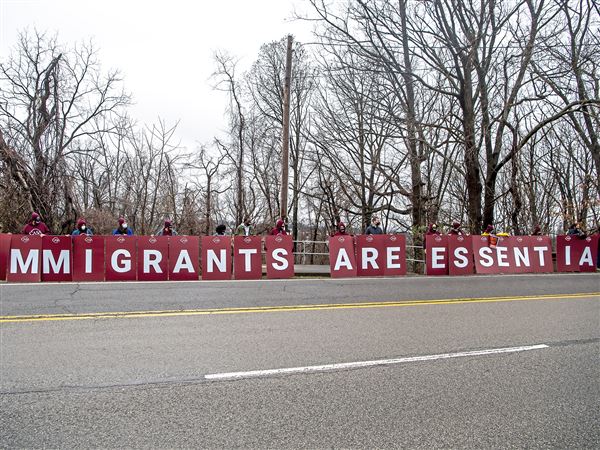A major black mark on American diplomacy that prevailed through President Barack Obama's first term and already into the first months of his second is the absence of useful dialogue with Iran.
Like it or not, Iran is a major player in an important part of the world, spanning the Middle East and South Asia. It has borders with Afghanistan, Armenia, Azerbaijan, Iraq, Pakistan, Turkey and Turkmenistan and a population of 80 million. It is an important oil producer. It demonstrated in its eight-year war with Iraq that it can fight and is prepared to sustain monstrous casualties on the battlefield.
Now, as Secretary of State John F. Kerry travels around the Middle East chasing his tail as he ostensibly tries to get the so-called peace process between the Israelis and Palestinians started again, U.S. non-relations with Iran remain an important part of the picture.
Iranian presidential and local elections are scheduled for June 14, however, so the United States should leave the Iranians alone for the moment. No Iranian government or politician would do any serious business with the United States right now -- U.S. relations is too sensitive a topic in Iranian internal politics. There nonetheless are substantial truths about Iran worth bearing in mind for use after the elections.
The first is that, although the elections will be held under confusing and decidedly undemocratic rules, Iranian internal politics are vigorous and competition among presidential candidates will be intense. So, might Iran's presidential elections be considered legitimate? Good question.
First of all, the Guardian Council, made up of religious figures, must approve all candidates. It is dominated by the supreme leader, Ayatollah Ali Khamenei. At this point, six weeks out, even the list of presidential candidates isn't known to the voters. An analyst of Iranian politics nevertheless could run through a staggering list of factions and possible lineups.
Outgoing President Mahmoud Ahmadinejad, the favorite of American late-night comedy hosts, connoisseurs of objectionable U.N. speeches and hateful anti-Semites, can't run again because of term limits. But he has a favored successor -- a relative and religious mentor, Esfandiar Rahim Mashaei -- who could win.
An opposing "reformist" faction is believed to be headed by ex-president Ali Akbar Hashemi Rafsanjani, an astute businessman who has been around a long time. His faction's candidate may be former President Mohammad Khatami, considered more reasonable than Mr. Ahmadinejad and his crew.
A second truth about Iran is that it is extremely difficult to know how much real damage U.S. and international sanctions are doing to the Iranian economy. They have made oil harder to export and less profitable. The economy is showing the strain, although the economic mismanagement of Mr. Ahmadinejad and his government has contributed. There apparently are some shortages even as Iran's wealthy still live high on the hog. Iranian financiers are as adept at finding offshore havens as Wall Streeters are.
Inflation is high and Iran's currency, the rial, has lost value. On the other hand, heretics believe America will eventually find its way out of its own debt miseries by inflating the dollar. I have seen people living extremely well in countries where the currency was so devalued that it had to be carried around in baskets.
What will probably always be true is that Iranians are consummate businesspersons and manipulators of money. That means it will be hard for anyone to force them to do anything by attacking them commerce-wise, as economic sanctions purport to do.
On the other hand, if the United States can claim that it is crushing Iran's leadership and forcing it to the table to negotiate away its nuclear industry through economic sanctions -- and in the process removing the rationale for the Israelis to attack Iran and start a major regional war -- so be it.
Iran claims that it cares deeply about Israeli persecution of the Palestinians. On the other hand, the Iranians are Shiites and the Palestinians are Sunnis and Christians. One important historical fact is that for years in the last century Iran and Israel were allies, linked in seeking to contain the Sunni Arabs. There remains a distant possibility -- in love's smoldering embers -- for reconciliation between these two outlier Middle East states.
In the meantime, at least until after the June elections in Iran, the United States and other potential negotiators should stop trying to get the Iranians to give up their nuclear program, which we profess to believe is in pursuit of a nuclear weapon and which the Iranians claim is purely for energy and other peaceful purposes. No Iranian politician is going to advocate anything of the sort until the new political lineup is on the field.
The United States should try to avoid being a card that any Iranian politician can play in the final weeks of Iran's presidential campaign. It should wait until someone wins, then see if useful contact can be established with the new configuration of leadership -- while remembering that the supreme leader will almost certainly still be holding the ace of trump.
First Published: May 1, 2013, 4:00 a.m.
















